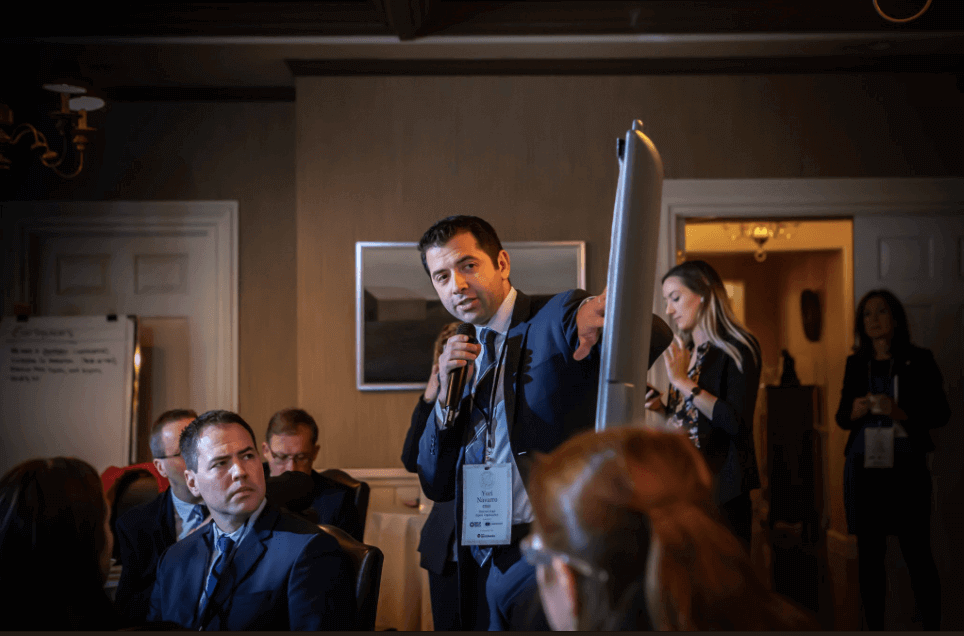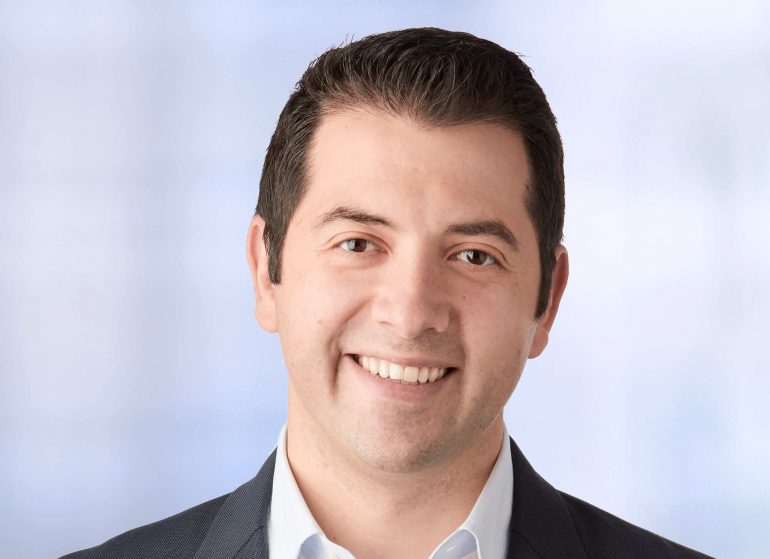Yuri Navarro is stepping down as CEO of the National Angel Capital Organization. Navarro will remain as CEO for at least an additional quarter in 2019 as the organization seeks a replacement.
Navarro joined the team in 2012 as managing director of new business, before moving into an executive director role in 2012 and CEO by 2016. Speaking with BetaKit, Navarro said NACO—which started as a regional organization in Toronto—is in a place where it can build on the foundation that’s been established. In the past few years, NACO has partnered with organizations like incubator association CABI and Highline BETA’s Female Funders program to facilitate more angel investing in Canada. Each year, the organization also publishes a status report on Canadian investing activity.
Yuri Navarro will begin work on an angel investing initiative with Montreal-based Panache Ventures to encourage more angel funds.
Navarro told BetaKit that the scale of the organization has become a management challenge rather than a growth challenge. “My interest tends to be around growing things, which is why I enjoyed the last six years at NACO and getting it to this point, but it’s time for me to go,” Navarro said. “Somebody that can have more focus on how to build processes and that link back to our databases is good for the organization, and that is more making the process more efficient, making the data useful to us; improving rather than building.”
Navarro said that the next step for NACO is to better leverage its existing datasets to support some of its policy work (last year, NACO signed a joint letter with the CVCA and CCI against proposed tax changes affecting small businesses) and making better connections with member companies. The organization has also indicated that it’s evolving from a catalyst for angel investing to a manager of it.

“NACO plans to continue focusing on the development of its best practices, education, and data as the underlying catalyst for helping to grow and professionalize the availability of early-stage risk capital in Canada,” said board chair Sandi Gilbert. “In doing so, NACO plans to work even more closely with its members across Canada to create a cohesive ecosystem of incubators, accelerators, and investors who can help grow and scale companies from the lab or garage, right through to the point where they can work directly with traditional venture capital, corporate and institutional investment organizations.”
“There’s an opportunity at the local level to build more camaraderie, relationships, collaboration among the angel networks.”
The organization hopes to set up more regional offices across Canada to improve connectivity between markets. It’s especially important as Navarro noted that venture capital is continually moving upstream; as more companies seek later-stage financing, venture funds that were already late-stage are moving into even later stages. Coupled with increasing private equity participation, a gap in early-stage funding is forming that means companies can’t access funding until later in their lifecycle.
“There’s an opportunity at the local level to build more camaraderie, relationships, collaboration among the angel networks, and that’s part of the growing curve of an angel community to get off the ground,” Navarro said. “You start primarily as a lone wolf, eventually form groups, and eventually start to collaborate with each other regionally. Once you see the benefit, you start to collaborate more across regions and borders.”
One of the challenges is that angel investors often work in silos, which means they make more mistakes if they’re coming from backgrounds like banking that don’t translate well into angel investing. “Frankly, [angel investing] is often a very different process,” Navarro said. “You see a lot of people who might, early on in the process, might put significant capital at risk with a few companies and get deeply involved, and while that does work sometimes, the data tends to suggest a broader portfolio approach is necessary.”
The latter challenge — professionalizing angel investing — is part of Navarro’s next move. Navarro will begin work with the team at Montreal-based Panache Ventures, a nearly-$50 million fund launched by several former 500 Canada members. While the specific initiative Navarro and the fund are doing together is still in the works, Navarro called out partners like Mike Cegelski and Patrick Lor for their involvement in the angel investing community.
However, Navarro did indicate the group hopes to encourage the creation of more angel funds. “Panache is in many ways an angel fund started by Canada’s two most successful angels in terms of track record, bringing some partners into the fund to give them the discipline of VC, and it’s primarily funded by angels,” he said. “They’ve learned a lot in the process of doing this, about how to spin up these funds, how to operationalize them, and the initiative that I’m exploring now is how to take those learnings and use that to spin up more funds.”
The group is looking beyond Canada, and into markets like Latin America and Europe, which would create a global network and connection for angel investors and their portfolios. “The operation and mechanics of a VC fund can be complicated, the VC math can be complicated, to some extent what we’re looking at is creating a playbook where angel funds get spun up over time.”

